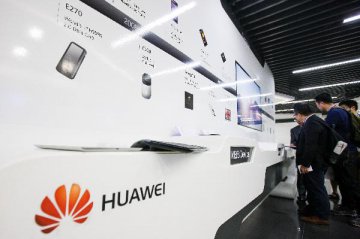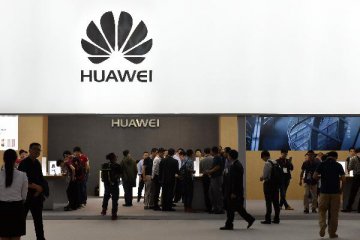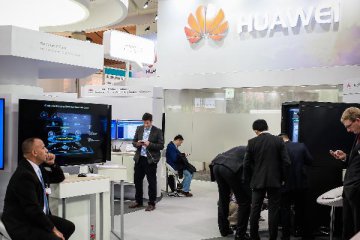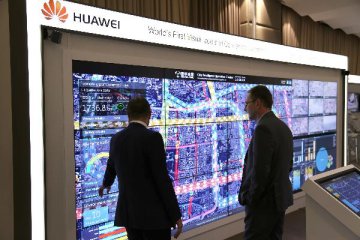
While the Trump administration’s ban on Huawei is causing trouble for the smartphone maker and the U.S. companies it does business with, Apple (AAPL) might be able to steal a win from the move. According to UBS analysts Timothy Arcuri and Munjal Shah, Apple has a chance to gain smartphone market share at Huawei’s expense.
That would be a big benefit to Apple, which, according to data from FactSet, is expecting a steep drop in revenue as a result of the ongoing trade war between the U.S. and China.
“Apple is clearly at risk of losing share in China, but there is likely some Huawei share to potentially gain in the U.S. or Europe, in our view,” Arcuri and Shah wrote.
Without the support of U.S. tech expertise including chips and Google’s Android operating system, Huawei may not be able to meet user demand for smartphones in regions including Europe where the company is popular with consumers. What’s more, the U.S. government’s insistence that Huawei is a security threat could make customers less willing to pay up for the company’s devices.
And that could mean more people buying Apple’s products.
Huawei on the outs
Under the government’s current rules, U.S. businesses are forbidden from working with Huawei, due to the Trump administration’s claim that the company poses a threat to U.S. national security.
The U.S. had already instituted a ban on government employees using Huawei devices—which the company is fighting in court—when the Trump administration put its blanket ban into effect.
Huawei is certain to face serious issues if the U.S. government upholds its ban, as the company relies on components and software produced by U.S. businesses to build its smartphones and other devices. But the biggest hit could come if Google revokes its Android platform support for Huawei’s handsets.
Google’s (GOOG, GOOGL) Android is the go-to operating system for smartphone makers around the world, and behind Samsung, Huawei is the most prominent smartphone manufacturer that uses Android. If Google killed support for the company’s handsets, it would mean users would be unable to do things like access Google’s Play Store to download apps. Users would then have to turn to third-party app stores, which are lousy with malware and spyware.
Shortly after the Trump administration announced its Huawei ban on May 15, Google cut off Huawei devices from any future Android updates. The administration, however, announced a 90-day reprieve so that companies that work with Huawei could sort out the logistics of cutting ties. During that time, Google will continue to support Huawei’s smartphones.
If the ban goes back into effect Aug. 19, though, Google will kill its work with Huawei.
In that case, Apple’s iPhone, and other Android device makers including Samsung, would provide a needed alternative to Huawei’s devices, which could raise Apple’s overall market share in places like Europe.
Apple could still face troubles in China
While Arcuri and Shah see potential for Apple in the event that Huawei stays on the U.S. government’s blacklist, the iPhone maker still faces problems in China. Smartphone sales there are stagnating, and the company is still working to win over consumers who continue to spend on less expensive devices from homegrown Chinese brands.
There’s also the chance that China will retaliate against the U.S.’s decision to block Huawei by putting Apple on a blacklist of its own. Moreover, Apple could lose out if the Trump administration chooses to place tariffs on additional Chinese-made products such as the iPhone.
The company is already set up to stave off any problems caused by those tariffs thanks to supplier Foxconn’s manufacturing capabilities in areas outside of the Chinese mainland. But with Apple relying on China for as much as 20% of its quarterly revenue, any retaliation could be hugely problematic for the company.
For now, Apple, and Huawei, will have to wait and see where the U.S. /China trade wars goes next.
Source: Yahoo Finance
























Latest comments